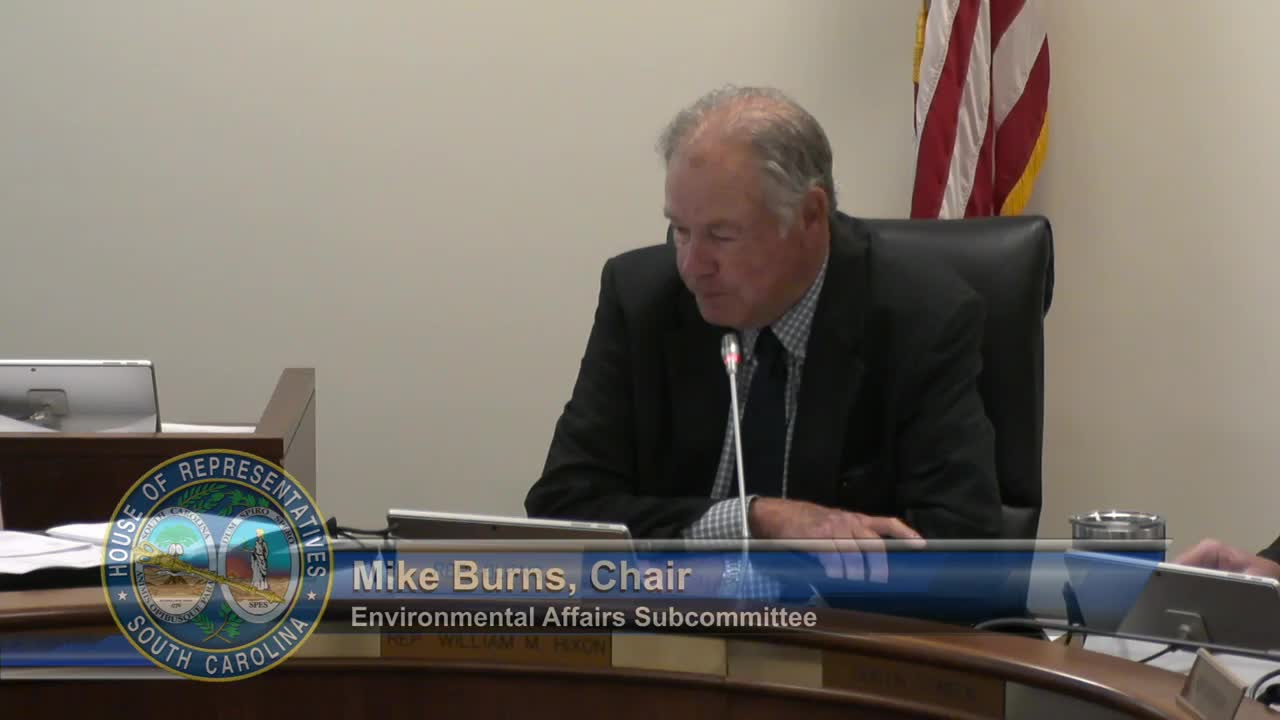Subcommittee advances bill letting some property owners install wells or septic if local provider cannot serve
Get AI-powered insights, summaries, and transcripts
Subscribe
Summary
The Agriculture, Natural Resources and Environmental Subcommittee advanced House Bill 4,168 after debate and an amendment that requires providers to respond in writing within 30 days when they cannot provide service and protects repair of existing private wells and septic systems.
Representative Forrest presented House Bill 4,168, saying the two-paragraph bill would allow a small subset of property owners to drill private wells or install septic systems when a public water or sewer provider lacks capacity or when private systems are more economical.
The measure drew opposition from municipal and utility representatives, who warned of public-health and environmental risks if local control is preempted. Supporters from groundwater and home-builder groups framed the bill as a property-rights and affordability measure.
The bill’s sponsor, Representative Forrest, told the subcommittee the bill “is really gonna apply to a very small minority of people around the state,” and that it allows homeowners to choose a private solution when public service is unavailable or costlier than a private well or septic system. He also said an amendment would protect owners who need to repair existing wells or septic systems.
Frank Eskridge, director of utility operations for Columbia Water and speaking for the South Carolina section of the American Water Works Association, urged a no vote. Eskridge said municipal utilities and special districts have built water and sewer infrastructure to protect public health and that a statewide mandate would “remove local authority” and risk proliferation of septic tanks in cities. “The proliferation of septic tanks in Columbia would present a public health hazard,” Eskridge said, adding that local ordinances in many cities already prohibit replacement or installation of septic tanks where public sewer is available.
Jay Swearingen of the South Carolina Groundwater Association said the bill provides needed relief when municipal or county systems “lack the capacity to serve that property” and allows property owners a cost-effective option; he estimated a household well might cost $5,000 to $15,000 depending on depth and geology. Alex James of the Home Builder Association said the bill is a “private property rights issue.” Dana Phillips and Avery Upchurch (Association of Counties) said they oppose the bill as drafted but welcomed the amendment to paragraph 1.
The subcommittee adopted Amendment 1, which requires that, if the providing entity cannot provide service, it must notify the property owner in writing within 30 calendar days of the request and clarifies that owners may repair existing private wells or septic systems rather than being forced to abandon them. The amendment passed on a 4-to-1 roll call (Representative Kramer voted No; Representatives Harris, May, Morgan and Chairman Burns voted Aye).
After the amendment, a motion to advance the bill from subcommittee passed on a roll call with Representatives Cromer, Harris, May, Morgan and Chairman Burns voting Aye. Chairman Burns said the bill will be considered by the full committee next Tuesday.
The record shows competing priorities: utilities argued for local control and long-term public-health safeguards; proponents emphasized cost and lack-of-service exceptions and required regulatory permitting for any private systems. The subcommittee did not change regulatory permitting requirements; witnesses and members noted that wells and septic systems must still meet Department of Environmental Services standards.
The subcommittee’s actions were procedural: the amendment established a 30-calendar-day written-notice requirement and a repair-protection clause; the bill was advanced to full committee for further consideration.
